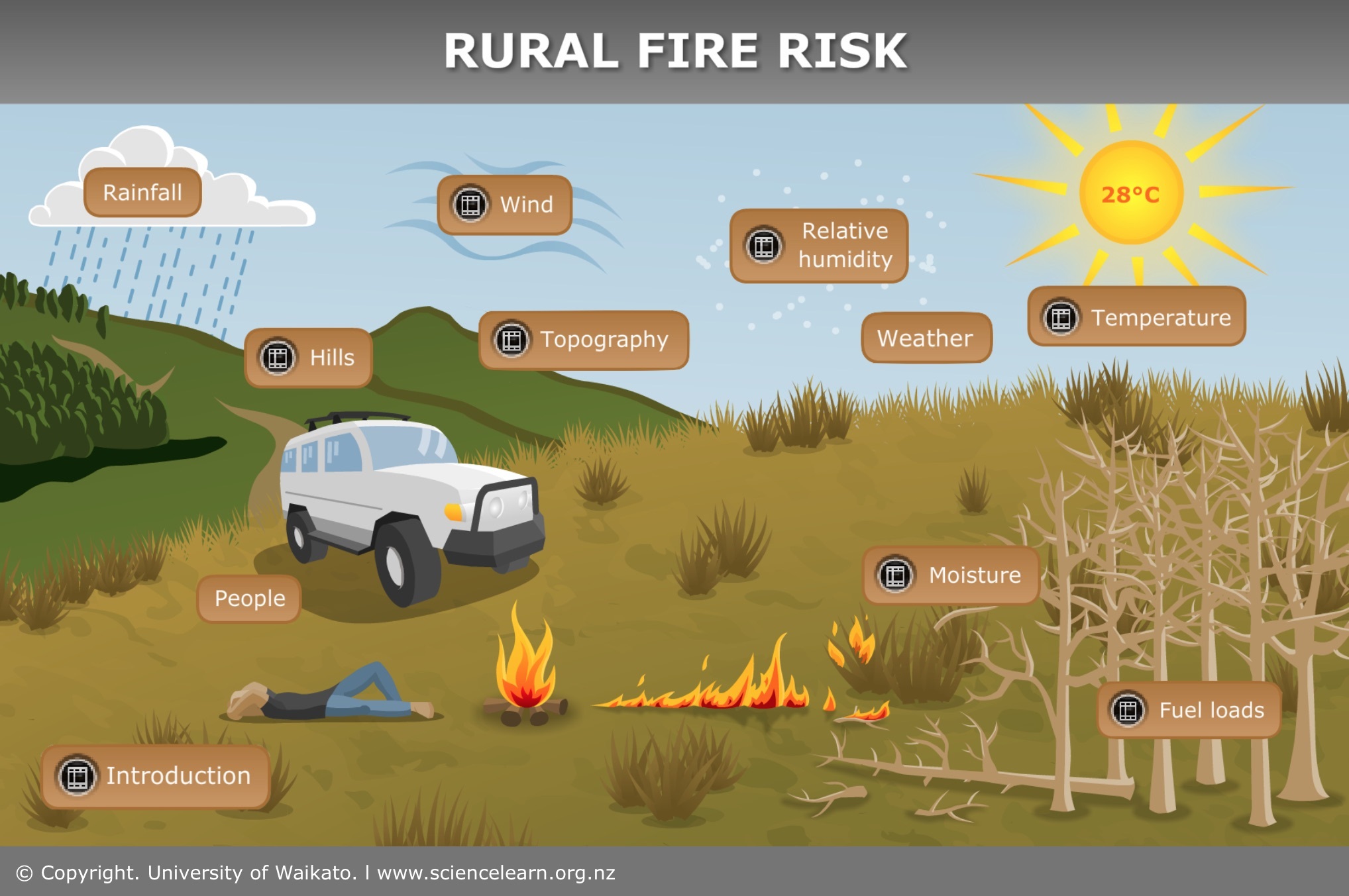In this activity, students identify and define fire risks, outdoors and indoors, using a provided image of a rural scene and an indoor scene they draw themselves.
By the end of this activity, students should be able to:
- identify and define exterior and interior fire risks
- identify similarities and differences between fire risks inside and outside.
Download the Word file (see link below) for:
- what you need
- what to do
- rural fire risk scene.
Nature of science
Environmental components (such as weather, terrain and fuel) can interact to contribute to a harmful situation – fire risk. These components and their interactions need to be explored by scientists to determine high fire risk situations and what can be done to reduce the risk.
Related content
Explore the work of New Zealand researchers looking into fire behaviour in the outdoors and how to manage this risk. Part of their work investigates the public’s perception of fire danger and it is also important to understand how how people behave in a fire emergency.
This recent research on invasive weeds and wildfires looks at the impacts of exotic weeds on outdoor fires.

